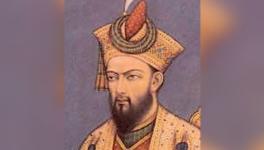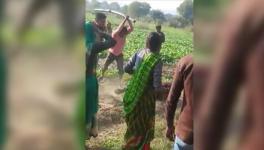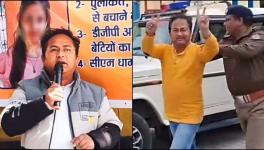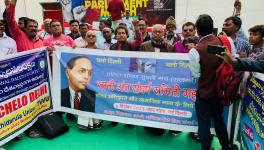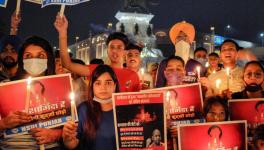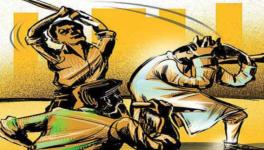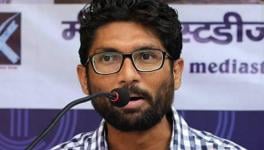Gujarat: Accused in Dalit Atrocity Cases Continue to Assault with Impunity
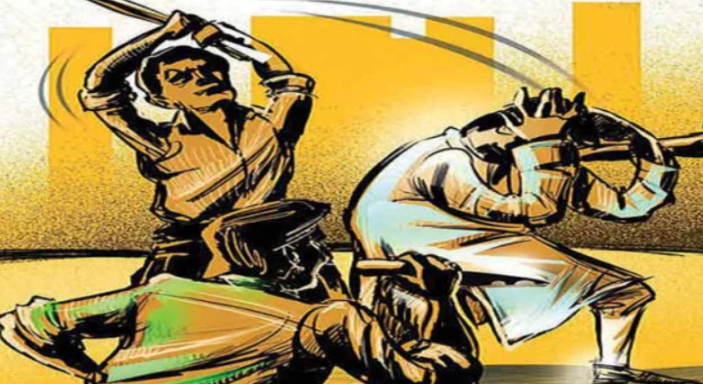
Representational Image. Image Courtesy: Indian Cultural Forum
Piyush Sarvaiya (27), who got justice after six long years of continued and consistent struggle for his slain brother- burned alive by a mob of upper caste men- was attacked by his brother’s murderers on June 27. The attackers, who were awarded life imprisonment six years after the incidents, were out on parole and rammed their motor cycle into Sarvaiya. Soon after Sarvaiya fell down, Arjan Babubhai Makwana, another accused in the killing of his brother, hurled casteist abuses and started beating him.
Following the attack, a case was registered under section 323 (voluntarily causing hurt), 504 (intentional insult with to provoke breach of peace), 506 (1) (criminal intimidation) of the Indian Penal Code and under the Scheduled Castes and Scheduled Tribes (Prevention of Atrocities) Act 1989 and attackers were arrested. But the attack on Sarvaiya was not the sole assault by accused in cases related with attacks on dalits.
Sarvaiya's home district Saurashtra saw at least four incidents where the kin of the victims were attacked by the accused and were denied police security. In a similar manner, Rajesh Sondarava was clubbed to death by the killers of his father Nanji Sondarava last year. Nanji Sondarava was a Right to Information (RTI) Activist who tried to expose suspected corruption by his attackers from the Kshatriya community.
Also read: Gujarat: Dalit Man Attacked by His Brother’s Murderer
A similar complaint was filed by Manji Solanki, 51, a dalit deputy sarpanch of Jalila village in Botad district, who was clubbed to death on June 19. Again, the assailants belonged to the Kshatriya community. Solanki, like other victims, too, had appealed for police security. Now, his family lives under a thick cover of security. A scrutiny of Solanki's case suggests that he was repeatedly assaulted over the years but had finally appealed for security this year. The continued and repeated attacks on the members of dalit community suggest a peculiar situation where the reluctance on the part of local police caused victims their lives.
Govindbhai Parmar, who was helping with the case of Lalji Sarvaiya’s brutal killing, brother of Piyush Sarvaiya, said that the impunity in the attacks is rooted in insensitivity spread across the police and judiciary. Talking to NewsClick, he said, “From my experience, I can say that both police and judiciary does not have sensitivity in dealing with these cases. Sometimes, the accused, investigating officer and the judge are from the same caste. So, the case is weakened from its inception. The government had passed the Scheduled Caste and Scheduled Tribes (Prevention of Atrocities) Act so that it can act on it. They must practice it but unfortunately it is missing."
Martin Macwan, prominent dalit activist and founder of Navsarjan Trust highlighted the fact that the police denied protection even if the person is living under threat to life. Citing the example of Manji Solanki, he said, "Solanki had asked for security to not only the Superintendent of Police but Director General of Police as well. Still, he did not not get it and it finally resulted in his murder. Leave that, five different families had asked for police protection for wedding processions recently and they did not get it initially. So, if somebody is asking for protection from the police which is the only solace but being denied that minimum security can be psychologically disastrous for them."
On being asked if the police is trained to deal with the sensitivity of the dalit cases, he said that the situation has changed significantly in recent times. He said, “I have been an activist for the last 40 years. Earlier, I was invited to address the meetings on issues concerning dalits and marginalised sections. But nowadays, I feel the police identifies itself more with the government. The people who hold views contrary to the people in the government are not liked much and this is hurting the cause of upliftment. So, what can I say? This is not good for democracy."
Get the latest reports & analysis with people's perspective on Protests, movements & deep analytical videos, discussions of the current affairs in your Telegram app. Subscribe to NewsClick's Telegram channel & get Real-Time updates on stories, as they get published on our website.










